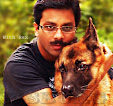Can Reinforcement Backfire With German Shepherds?
"Behavioral Intervention" is the right phrase to be used when it comes to positive reinforcement to correct undesirable behavior in your dog. German Shepherd is a power breed and any kind of behavioral disorder, however mild it be, needs to be corrected at the very early age.
What is "Behavioral Intervention"?
Behavioral Intervention is a systematic plan engineered for a particular dog to teach the dog to change his or her specific behavior(s). Behavioral Intervention strategies are masterfully designed to target the modifications of specific habits, and simultaneously positively reinforcing the alternative desirable skills in your dog.
Positive Reinforcement, as we also call it Positive Motivation Training is a highly effective and scientific method to shape and/or re-shape your dog's behavior. It involves including a motivational item - "Reward", as we call it, into the training process to motivate the dog to act as desired on command. Canine behaviorists have noticed that food acts as a better motivator than any other motivation factor in a rewards based training process.
In Positive Reinforcement training methods , as a rule of thumb, the reward is presented to the dog after the dog shows the desired behavior, thereby ensuring the particular behavior more likely to be exhibited by the dog in future for same situation(s).
The Behavioral Intervention + Positive Reinforcement have to be very strategic and hugely demands a professional's attention. The reinforcement training methods can immensely backfire if implemented wrongly and unplanned. There's a popular belief that too much of dependence on reinforcement by rewards gets quick results, but not long lasting. This is, however, a myth. Reward based reinforcement training has an everlasting effect if correctly done.
However, Reinforcement Can Backfire
Yes, with novice hands reinforcement training can immensely backfire, leaving your dog with reinforced undesirable habits. Novice trainers and newbies usually fail to identify the most significant points required for an effective Behavioral Intervention Plan. This will certainly backfire and adversely affects your dog’s learning process.
Most importantly, as a trainer you must identify the specific "behavior(s)" that actually need "intervention". In this process many new trainers mistakenly confuse with which specific behavior(s) should be intervene, and how should the Reinforcement Plan be formulated. Thus, many trainers have been noticed to have ended up with reinforcing wrongly, leaving the dog being reinforced on bad behaviors only.
Important points here...
Point - 1: Praise Only Those Accomplishment That Have Been Consciously Accomplished - Not Accidentally Accomplished.
Point - 2: Praising at The Right Point of Time is Important. Dogs Live on Time. Rewarding Your Dog a Few Minutes After The Desired Accomplishment May Have a Different Implication. Therefore, Trainer's Attention is a Mandate.
Point - 3: Motivator (Reward/Praise) Should be a Real Motivator. If The Dog Doesn't Get Motivated With The Reward Used, The the Reinforcement Training Process is Bound to Backfire.
Point - 4: Priorities and Preferences Are Important. Not Every Behavior Needs To Be Treated As Undesirable at a Give Time.
Point - 5: Consistency is the Key To Success. If The Trainer is Inconsistent and Non-Repetitive in Rewarding, Then Reinforcement Won't be Effective, And May Even Backfire, as the Inconsistent Behavior of his Pack Leader (Trainer) Will Confuse Him.
Point - 6: Its Important to Consider Exercises and Socialization as Integral Part of Reinforcement Training. Socialization is Not a Separate Process.
Antecedents and Behavior
The two most significant areas of understanding for a trainer in the process of developing a "Behavioral Intervention Plan" for his subject are:
i. Antecedent(s): Antecedents are the stimuli/stimulus that triggers a specific behavior or a specific set of behaviors in your dog. These stimulus can be certain situations, any specific event(s), any particular person or any indecent. An antecedent can stimulate the dog to exhibit bad as well as good behavior. Therefore, it is important to identify the Antecedent(s) prior to creating a Behavior Intervention Plan. Wrongly identifying the antecedents may lead to incorrect reinforcement in the training process, thus resulting to backfire.
ii. Behavior(s): Behavior is what the dog does being stimulated by an antecedent. An assessment of specific behavior is of utmost importance, because the reinforcement training starts off with identifying the particular behavior that needs to be intervene. A trainer should target one specific behavior at a time rather than targeting a set of undesirable behaviors. This makes Reinforcement Training by Behavioral Intervention more effective and easier. In this process of modifying one single behavior of the dog, a trainer may have to address a set of undesirable behaviors that are collectively responsible for the particular single undesirable behavior, and modify each of them.
Therefore, followed by identifying the Antecedent(s), it is important to identify the other behavior(s) that may be responsible for a particular behavioral issue. Failing to identifying all these correctly the entire Reinforcement Training session may adversely backfire. Read more...

























